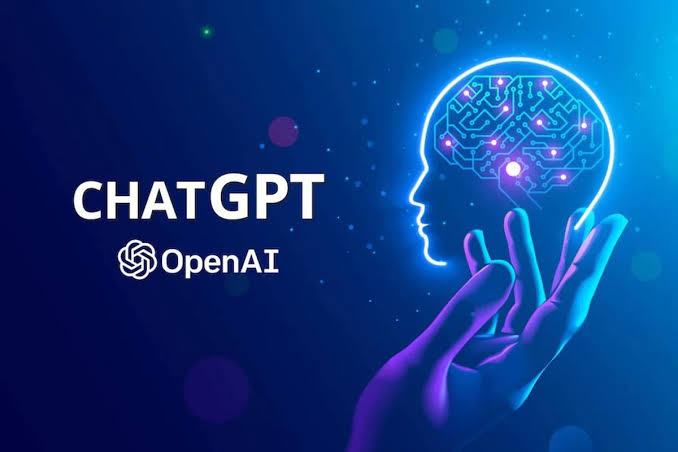'The Creator' confronts us with our deepest AI-related fears in a vivid and extravagant manner. While we can view it with a sense of skepticism, it underscores the harsh realities of both the advantages and disadvantages of the new tech, a truth that cannot be disregarded.
Artificial Intelligence (AI) and women are fundamentally different concepts. AI refers to computer systems designed to perform tasks that typically require human intelligence, such as learning, problem-solving, or language understanding. It's a technology.
On the other hand, "women" refers to a gender category in human beings. Women, like men, are individuals with diverse abilities, experiences, and roles in society. Comparing AI to women is comparing a technological field to a group of people, and such comparisons can be misleading and inappropriate.
If you have specific questions about AI or women, feel free to ask, but it's essential to approach these topics with sensitivity and respect for the different contexts they represent.
The future impact of artificial intelligence (AI) is broad and multifaceted. Some potential effects include:
1. **Automation of Jobs:** AI has the potential to automate routine and repetitive tasks, which may impact certain job sectors. However, it also creates opportunities for new types of jobs and tasks.
2. **Increased Efficiency:** AI can enhance efficiency across various industries by optimizing processes, analyzing large datasets quickly, and making more informed decisions.
3. **Innovation and Problem-Solving:** AI has the capacity to tackle complex problems by processing vast amounts of information and identifying patterns that may be challenging for humans to discern.
4. **Medical Advancements:** AI can contribute to breakthroughs in healthcare by improving diagnostics, drug discovery, and personalized medicine.
5. **Ethical and Societal Challenges:** The widespread use of AI raises ethical considerations, including issues related to privacy, bias in algorithms, and the impact on social structures.
6. **Enhanced User Experience:** AI technologies, such as natural language processing and computer vision, contribute to improved user experiences in areas like virtual assistants, chatbots, and personalized recommendations.
7. **Economic Impact:** The development and implementation of AI can lead to economic growth by fostering innovation and creating new markets.
8. **Cybersecurity Challenges:** As AI advances, so do potential threats in terms of cybersecurity. Ensuring the security of AI systems becomes crucial to prevent misuse.
9. **Education and Skill Development:** The rise of AI underscores the importance of education and the need for individuals to acquire skills that complement and adapt to the evolving technological landscape.
10. **Human-AI Collaboration:** The future may involve increased collaboration between humans and AI, where AI augments human capabilities rather than replacing them entirely.
The overall impact of AI will depend on how it is developed, implemented, and regulated. It's important for society to consider the ethical implications and work towards ensuring that AI benefits humanity asArtificial Intelligence (AI) offers various benefits across different sectors:
1. **Increased Efficiency:** AI can automate routine and time-consuming tasks, leading to increased efficiency and productivity in various industries.
2. **Data Analysis:** AI can quickly analyze large datasets, extracting valuable insights and patterns that may be challenging for humans to discern.
3. **Improved Decision Making:** AI systems can process vast amounts of information rapidly, aiding in more informed and data-driven decision-making.
4. **Cost Savings:** Automation through AI can lead to cost savings by reducing the need for manual labor and streamlining processes.
5. **Enhanced User Experience:** AI technologies, such as natural language processing and machine learning, contribute to improved user experiences in applications like virtual assistants, chatbots, and personalized recommendations.
6. **Healthcare Advancements:** AI is making significant contributions to healthcare through improved diagnostics, personalized medicine, and drug discovery.
7. **Predictive Maintenance:** In industries like manufacturing, AI can predict when equipment is likely to fail, enabling proactive maintenance and minimizing downtime.
8. **Innovation:** AI fosters innovation by enabling the development of new technologies and solutions across various domains.
9. **Accessibility:** AI can enhance accessibility by providing solutions for people with disabilities, such as speech recognition or text-to-speech technologies.
10. **Natural Language Processing:** AI-driven language processing enables better communication between humans and computers, facilitating advancements in translation services, chatbots, and virtual assistants.
Artificial Intelligence (AI) refers to the simulation of human intelligence in machines that are programmed to think and learn like humans. It encompasses a broad range of technologies and techniques that enable machines to perform tasks that typically require human intelligence. These tasks include:
1. **Problem Solving:** AI systems can analyze data, identify patterns, and make decisions to solve complex problems.
2. **Learning:** AI systems can learn from experience or data, improving their performance over time without explicit programming.
3. **Speech Recognition:** AI enables machines to understand and respond to spoken language, facilitating applications like virtual assistants.
4. **Image Recognition:** AI technologies, such as computer vision, allow machines to interpret and understand visual information from images or videos.
5. **Natural Language Processing:** AI enables machines to understand, interpret, and generate human-like text, contributing to applications like language translation and chatbots.
6. **Machine Learning:** This involves the use of algorithms that allow machines to learn patterns from data and make predictions or decisions.
7. **Robotics:** AI plays a crucial role in robotics, allowing machines to perceive their environment and make decisions to perform tasks.
8. **Autonomous Vehicles:** AI is used in the development of self-driving cars and other autonomous systems, enabling them to navigate and make decisions without human intervention.
AI can be categorized into two types: Narrow AI (or Weak AI), which is designed for a specific task, and General AI (or Strong AI), which would have the ability to understand, learn, and apply knowledge across a wide range of tasks at human-like levels.
AI has diverse applications across industries, including healthcare, finance, education, entertainment, and more. It continues to advance, impacting various aspects of our lives and society.
While these benefits are substantial, it's crucial to consider ethical implications, data privacy, and the potential impact on employment as AI continues to evolve and become more integrated into our daily lives. Responsible development and use of AI technologies are essential to maximize positive outcomes. a whole.
ChatGPT, like other applications powered by the GPT-3.5 architecture, is designed to generate human-like text based on the input it receives. Some common uses of ChatGPT include:
1. **Conversational Agent:** Providing users with a conversational interface for information retrieval, answering questions, and engaging in dialogue.
2. **Text Generation:** Creating human-like text for a variety of purposes, such as content creation, writing assistance, and creative writing prompts.
3. **Language Translation:** Assisting with the translation of text from one language to another.
4. **Code Generation:** Helping with the generation of code snippets or providing programming-related assistance.
5. **Tutoring:** Offering explanations and information on a wide range of topics, akin to a tutoring or informational service.
6. **Idea Generation:** Assisting users in brainstorming ideas or solutions for various problems.
It's important to note that while ChatGPT can be a powerful tool for certain applications, it has limitations and might generate responses that are contextually incorrect or nonsensical. Users should exercise caution and critical thinking when interpreting the output. Additionally, ChatGPT doesn't have real-time awareness or access to personal data unless explicitly provided in the course of the conversation.
Intelligence is a complex and multifaceted ability to acquire and apply knowledge, solve problems, adapt to new situations, and learn from experience. It involves the capacity to reason, understand relationships, perceive connections, and make sound decisions. Intelligence is not limited to a single cognitive function but encompasses a range of mental abilities.
There are different theories and models of intelligence, and researchers often define it in various ways. Some common types of intelligence include:
1. **Analytical Intelligence:** The ability to analyze and solve problems, as measured by tasks that require logical reasoning and critical thinking.
2. **Creative Intelligence:** The ability to think creatively, generate novel ideas, and approach problems in innovative ways.
3. **Practical Intelligence:** The ability to adapt to and navigate real-world situations effectively, demonstrating "street smarts" and practical problem-solving skills.
4. **Emotional Intelligence:** The ability to perceive, understand, manage, and regulate emotions in oneself and others, as well as navigate social situations effectively.
Intelligence is not solely determined by a single factor and can manifest in various forms. Intelligence tests are often used to assess certain aspects of cognitive abilities, but they may not capture the full spectrum of human intelligence. The understanding of intelligence continues to evolve within the fields of psychology, neuroscience, and artificial intelligence.









0 Comments